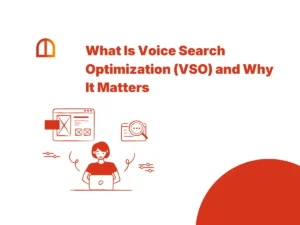If you’ve spent even five minutes trying to grow anything online—whether it’s a blog, a small business, or a personal brand—you’ve probably heard the term SEO tossed around like digital confetti.
But… what is SEO, really? And why should you even care?
Let’s say you sell digital products online. There are thousands of others just like you. Without a solid SEO strategy, your website could be sitting on page 20 of Google—aka digital no man’s land—while your ideal customers are buying from someone else.
So, think of SEO like a giant neon sign on the internet that says:
“Hey! I’ve got exactly what you’re searching for.”
That’s the power of SEO.
Now that you get the idea, let’s look at the nitty-gritty of SEO. So, what is SEO?
Read more about Using Data-driven SEO Strategy Adjustments.
What is SEO for Beginners?
Search Engine Optimization, often abbreviated as SEO, is the practice of enhancing a website’s visibility and ranking on search engine results pages (SERPs) through organic (non-paid) methods.
The primary goal of SEO is to increase the quality and quantity of traffic to a website by optimizing its content and structure, making it more appealing to search engines like Google, Bing, and Yahoo.
Also, the better your SEO, the more likely people are to find your website when they search for something related to your business, product, or service.
In simple terms:
More visibility = More traffic = More Opportunitiess to grow.

Learn more about How to Use SEO Marketing to Attract Holiday Shoppers to Your Website
How Does It Work?
SEO, or Search Engine Optimization, is a complex process that involves various strategies and techniques to improve a website’s visibility in search engine results.
At its core, SEO works by optimizing a website’s content, structure, and other factors to make it more appealing to search engines like Google, Bing, and Yahoo.
Learn more about Top SEO Tools for SaaS Startups in 2025
Here’s a simplified overview of how SEO works:
1. Keyword Research
The SEO process begins with keyword research. This involves identifying the specific search terms (keywords) that people use when looking for information related to your website’s content, products, or services. Keyword research helps you understand what your target audience is searching for.
2. On-Page Optimization
On-page SEO involves optimizing individual web pages to make them more search engine-friendly. This includes:
- Content Optimization: Creating high-quality, relevant content that incorporates target keywords naturally.
- Meta Tags: Optimizing meta titles and meta descriptions to include target keywords and entice users to click on your search results.
- Headings: Using appropriate headings (H1, H2, H3, etc.) to structure content and make it more readable.
- URL Structure: Creating clean and descriptive URLs that include keywords.
- Image Optimization: Adding alt tags to images and ensuring images are appropriately compressed for faster loading.
3. Off-Page Optimization
Off-page SEO focuses on factors outside your website that influence your search engine rankings. Key elements include:
- Backlinks: Acquiring high-quality, authoritative backlinks from other websites. These backlinks signal to search engines that your content is trusted and valuable.
- Social Signals: Building a strong social media presence and encouraging social sharing of your content.
- Brand Mentions: Getting mentioned on other websites, even without a direct link, to establish authority and brand recognition.
 You can read more about SEO for Fashion Ecommerce: How to Let People See Your Brand
You can read more about SEO for Fashion Ecommerce: How to Let People See Your Brand
4. Technical SEO
Technical SEO involves optimizing the technical aspects of your website to ensure search engines can crawl and index it effectively. This includes:
- Site Speed: Improving loading times for a better user experience and search ranking.
- Mobile-Friendliness: Ensuring your website is responsive and performs well on mobile devices.
- Structured Data Markup: Adding structured data to provide search engines with additional information about your content.
- XML Sitemaps: Creating XML sitemaps to help search engines understand your website’s structure.
- Robots.txt: Using the robots.txt file to control what parts of your site are crawled by search engines.
5. Local SEO
For businesses with a physical presence, local SEO optimizes your website and online profiles to appear in local search results. This includes creating and optimizing your Google My Business listing, acquiring local citations, and managing online reviews.
- Monitoring and Analysis: SEO is an ongoing process. Regular monitoring and analysis of website traffic, keyword rankings, and other SEO metrics are essential to track your progress and make necessary adjustments.
- Content Creation and Updates: Continuously creating and updating high-quality, relevant content keeps your website fresh and engaging for both users and search engines.
- User Experience: Providing an excellent user experience is vital. This includes easy navigation, mobile-friendliness, and fast-loading pages.
- Algorithm Updates: Staying informed about search engine algorithm updates and adjusting your SEO strategies accordingly is crucial, as search engines continually evolve their ranking criteria.
The ultimate goal of SEO is to improve your website’s search engine ranking for relevant keywords, which in turn increases organic (non-paid) traffic.
Effective SEO strategies can enhance your website’s visibility, attract more visitors, and ultimately help you achieve your online goals, whether it’s boosting sales, gaining subscribers, or increasing brand awareness.
Types of SEO Explained
There are several types of SEO, each catering to specific aspects and goals of search engine optimization.
Read more about The Best Ecommerce SEO Company in 2025

Here are the main types of SEO:
1. On-Page SEO
This type of SEO focuses on optimizing individual web pages to improve their search engine ranking. It involves optimizing content, meta tags, headings, images, and other on-page elements. On-page SEO also encompasses keyword research and ensuring that relevant keywords are strategically incorporated into the content.
Read more about On-Page vs. Off-Page SEO: Which One Matters More?
2. Off-Page SEO
Off-page SEO concentrates on factors that occur outside of your website to improve its search engine ranking. This includes activities like link building, where you aim to acquire high-quality backlinks from other websites, social media marketing, influencer marketing, and brand mentions. The goal is to establish your website’s authority and credibility in your niche.
3. Technical SEO
Technical SEO deals with the technical aspects of a website to improve its visibility to search engines. It involves optimizing website speed, mobile-friendliness, structured data markup, XML sitemaps, and ensuring proper indexing by search engines. Technical SEO is crucial for enhancing user experience and search engine accessibility.
4. Local SEO
Local SEO is essential for businesses that serve a specific geographic area. It aims to optimize your website’s visibility in local search results, such as “dentists near me” or “coffee shops in San Francisco.” Local SEO includes setting up and optimizing your Google My Business profile, getting customer reviews, and ensuring accurate NAP (Name, Address, Phone Number) information across online directories.
5. eCommerce SEO
If you own different types of eCommerce businesses, then eCommerce SEO is tailored for you. It involves optimizing product pages, category pages, and other aspects of an e-commerce website. Key strategies include optimizing product descriptions, managing duplicate content issues, and creating an efficient site structure that helps users find products easily.
Read more about E-commerce SEO Checklist: The 17 Things to Do Rank
6. Voice Search SEO
With the growing popularity of voice-activated devices like smart speakers and virtual assistants, voice search SEO has become important. It focuses on optimizing content for natural language queries and long-tail keywords, which are commonly used in voice searches.
7. Video SEO
Video content is increasingly popular. Also, video SEO involves optimizing video content for platforms like YouTube, making sure video titles, descriptions, and tags are keyword-rich. It also involves creating engaging, high-quality video content that viewers find valuable.
8. Mobile SEO
As more people use mobile devices to access the internet, mobile SEO ensures that websites are optimized for mobile users. This includes responsive web design, optimizing page load times, and improving the mobile user experience.
9. International SEO
For businesses with a global presence, international SEO ensures that websites rank well in different countries and languages. It involves Hreflang tags, country-specific domain extensions, and other strategies to target a global audience effectively.
Read more about SEO Strategies for Start-ups: How to Boost Visibility in 2025
10. App Store Optimization (ASO)
App Store Optimization is a specialized form of SEO that focuses on mobile apps. It involves optimizing app titles, descriptions, keywords, and user reviews to improve an app’s visibility and download rate in app stores like the Apple App Store and Google Play Store.
Read more about Common SEO Mistakes Affecting Your Website and How to Fix Them
Why SEO Matters for Small Businesses
SEO helps small businesses get discovered online by making their websites show up in search results when people look for products or services. It brings in free, organic traffic, builds trust with customers, and levels the playing field against bigger competitors—all without needing a huge ad budget.
It also improves user experience, boosts local visibility, and gives insights into what your customers are searching for. Simply put, SEO helps you attract the right people at the right time—and that’s a big win for any small business.
Read more about SEO for Business Growth (Driving Organic Traffic)
Now That You Know
SEO isn’t magic, and it’s not a quick fix. But it works.
From keywords to technical tweaks, SEO helps you build a solid digital foundation that brings in traffic, builds trust, and grows your presence online.
So the next time someone asks, “What is SEO?”
You’ll know it’s not just some digital buzzword—it’s your growth engine.
If you need assistance in optimizing your website, don’t hesitate to contact us!
The Techdella team writes about startup marketing strategy, growth tactics, and what actually works when you're building a company with real constraints.
Get it in your inbox
One email a week. Real startup marketing insights — no filler.
Join 1,400+ founders. Unsubscribe anytime.
You're in!
Thanks for subscribing. Your first issue will arrive shortly.



